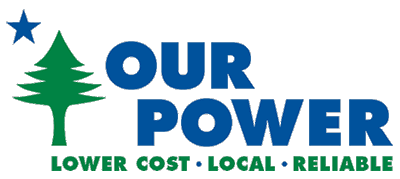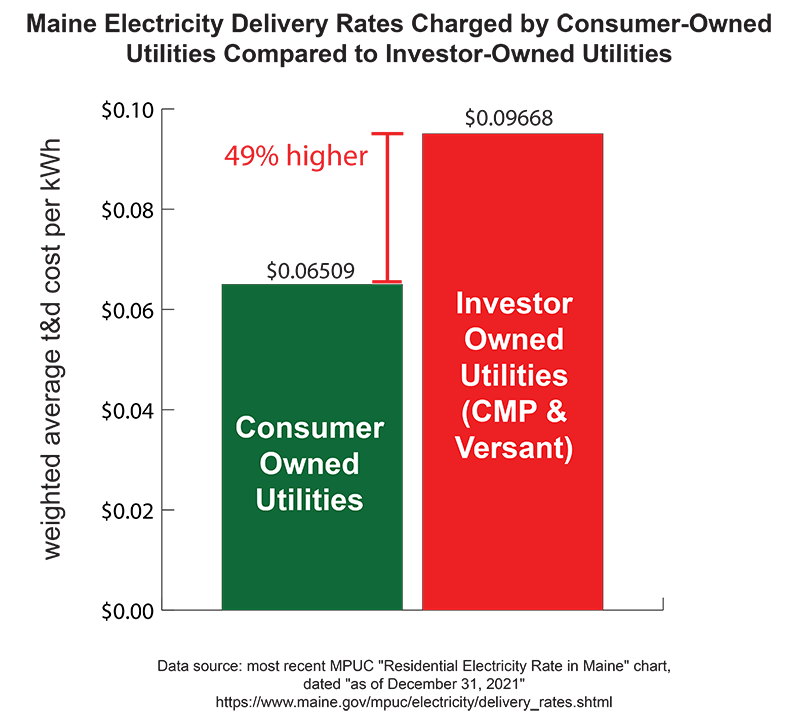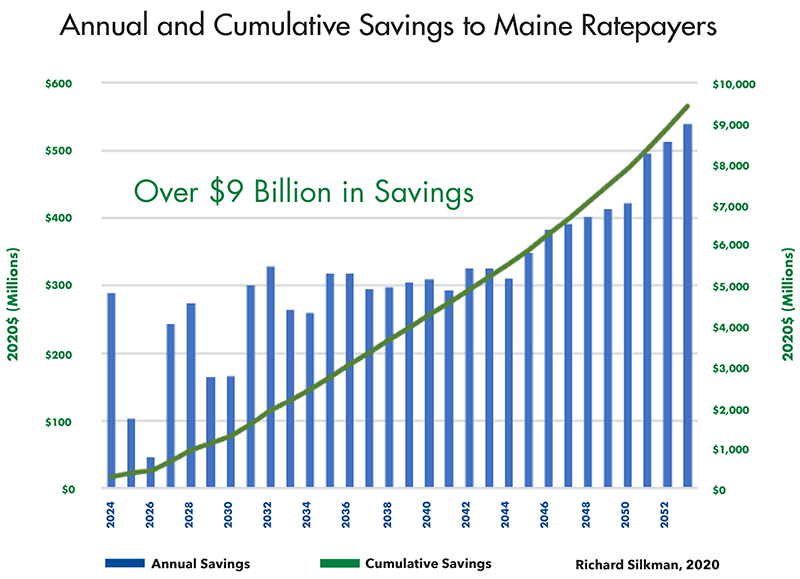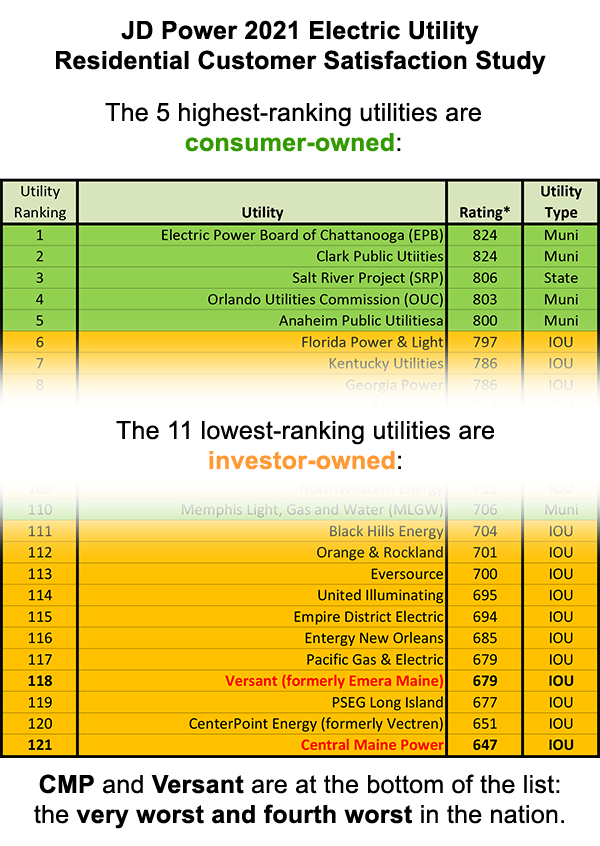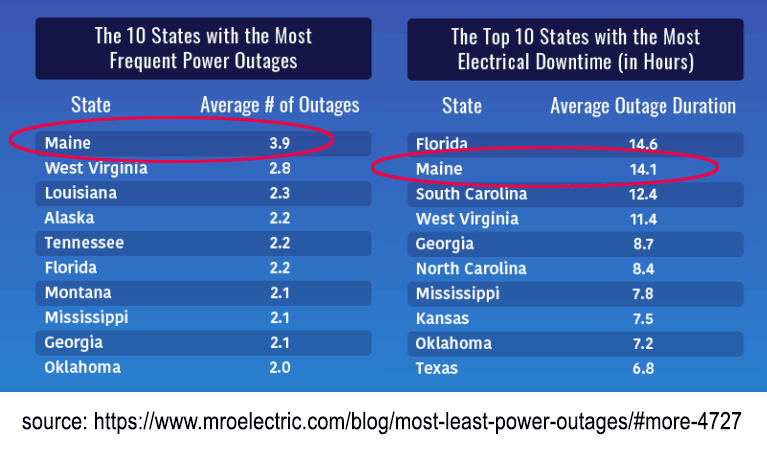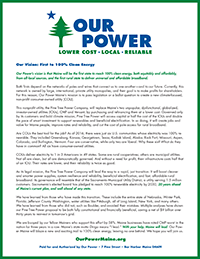If the future of energy is electricity, who will own and control YOUR power? Consumer-owned utilities (COUs) – where the ratepayers own the utility rather than corporate shareholders – have provided reliable electricity to U.S. customers since the 1890s. Today, about 2,900 “municipal” and “cooperative” COUs serve 91 million Americans. Some COUs are large, and others are small. Here in Maine, our 10 COUs serve 98 towns, charge their customers far less on average than Maine’s investor-owned utilities CMP and Versant, and provide far more reliable service.
Benefits of Consumer-Owned Utilities
COUs often outperform investor-owned utilities (IOUs) because of one essential difference: IOUs serve their shareholders while COUs serve their ratepayer/owners.
Click on each of the benefits listed below to learn more details about why COUs are a better choice for customers:
More Details on Consumer-owned utilities:
Consumer-owned utilities in Maine
Maine has a history of locally-owned electric, water and telephone utilities. Currently part or all of 98 of Maine’s 488 communities are served by consumer-owned electric utilities, or COUs:
